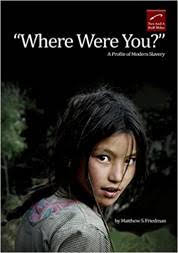Britain to double aid spending to fight modern slavery worldwide
LONDON: Anti-slavery activists on Wednesday welcomed Britain's pledge to double its aid spending on global projects tackling the crime to 150 million pounds ($203 million), and boost training for police and prosecutors, yet called for greater support for victims.
British Prime Minister Theresa May announced the spending - which will be funded from Britain's overseas aid budget and support programmes in countries including Nepal and Nigeria - at a panel on modern slavery at the annual UN General Assembly.
Speaking in New York late on Tuesday, May said the spending would include 20 million pounds ($27 million) for the US-based Global Fund to End Modern Slavery - a public-private partnership seeking $1.5 billion in order to combat the crime globally.
"For a crime that has no respect for borders, we need a truly international response," May said at the event, which followed the publication of the first joint effort by key anti-slavery groups to estimate the number of victims worldwide.
The International Labour Organization, rights group Walk Free Foundation and International Organization for Migration said that at least 40.3 million people were victims of modern slavery in 2016 - trapped in forced labour and forced marriages.
Britain will also train new slavery investigators and police officers, and help prosecutors to handle complex cases, May said at the UN panel, which included an address from Ivanka Trump, the daughter of US President Donald Trump.
Anti-slavery groups such as Anti-Slavery International, the Freedom Fund, and International Justice Mission welcomed May's pledge as a step forward in the global drive to end slavery.
"However, it's concerning that there's barely a mention of protecting the victims, which is still the biggest weakness of the UK's response to modern slavery," Aidan McQuade, director of Anti-Slavery International, told the Thomson Reuters Foundation by email.
Britain passed the Modern Slavery Act in 2015 to crack down on traffickers and protect people feared at risk of being enslaved, but critics say that victims are often neglected.
"Many victims are left unsupported, many are not recognised as victims at all, and traffickers get away with their crimes as a result," McQuade added. "This is where the biggest investment should go."
Modern slavery is more prevalent across Britain than previously thought as more gangs realise they can capitalise on a crime estimated to generate profits of $150 billion per year globally, the National Crime Agency said last month.
Previous estimates suggested there were up to 13,000 victims of forced labour, sexual exploitation and domestic servitude in Britain, but the NCA says that figure is the tip of the iceberg.






